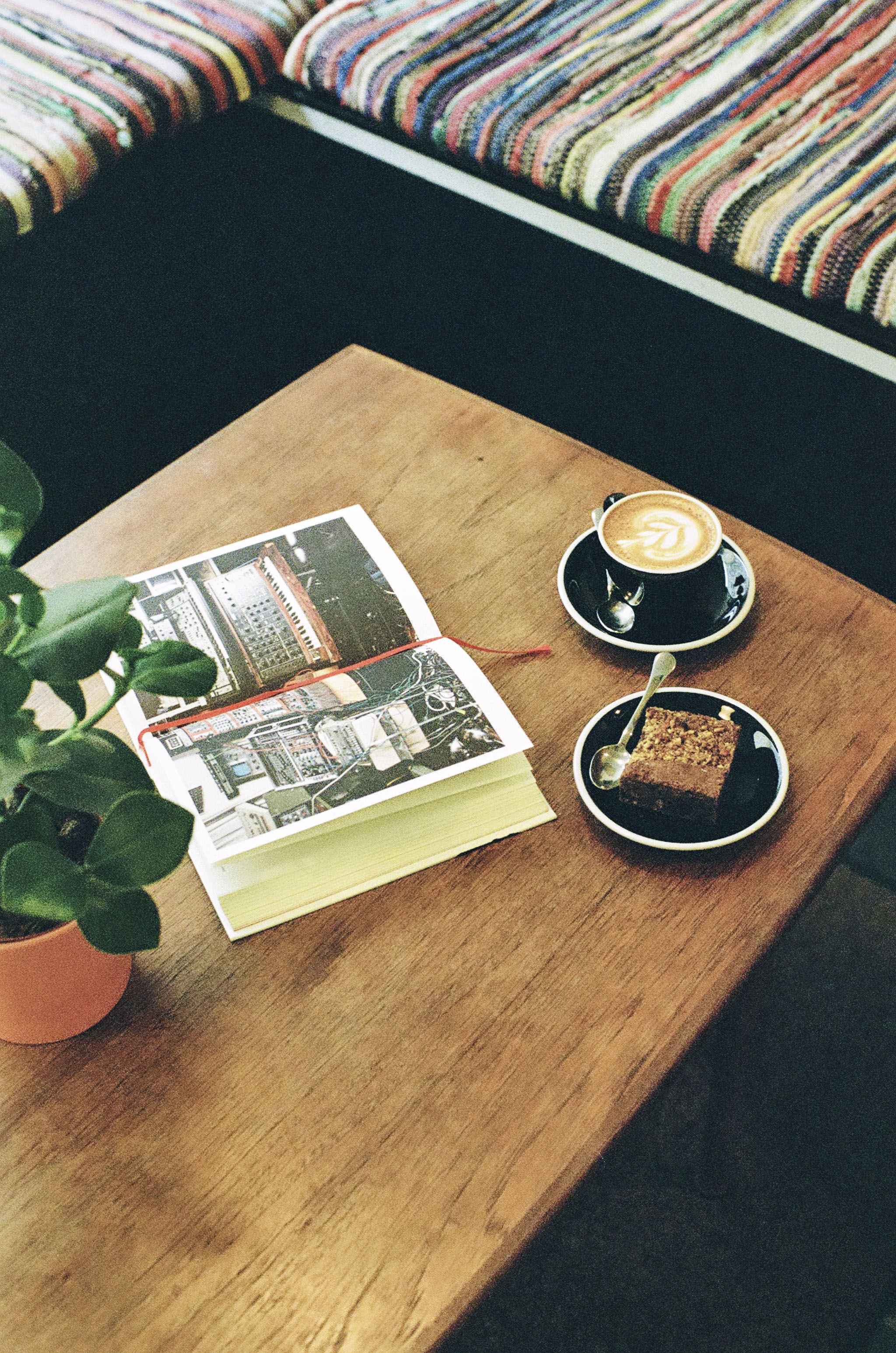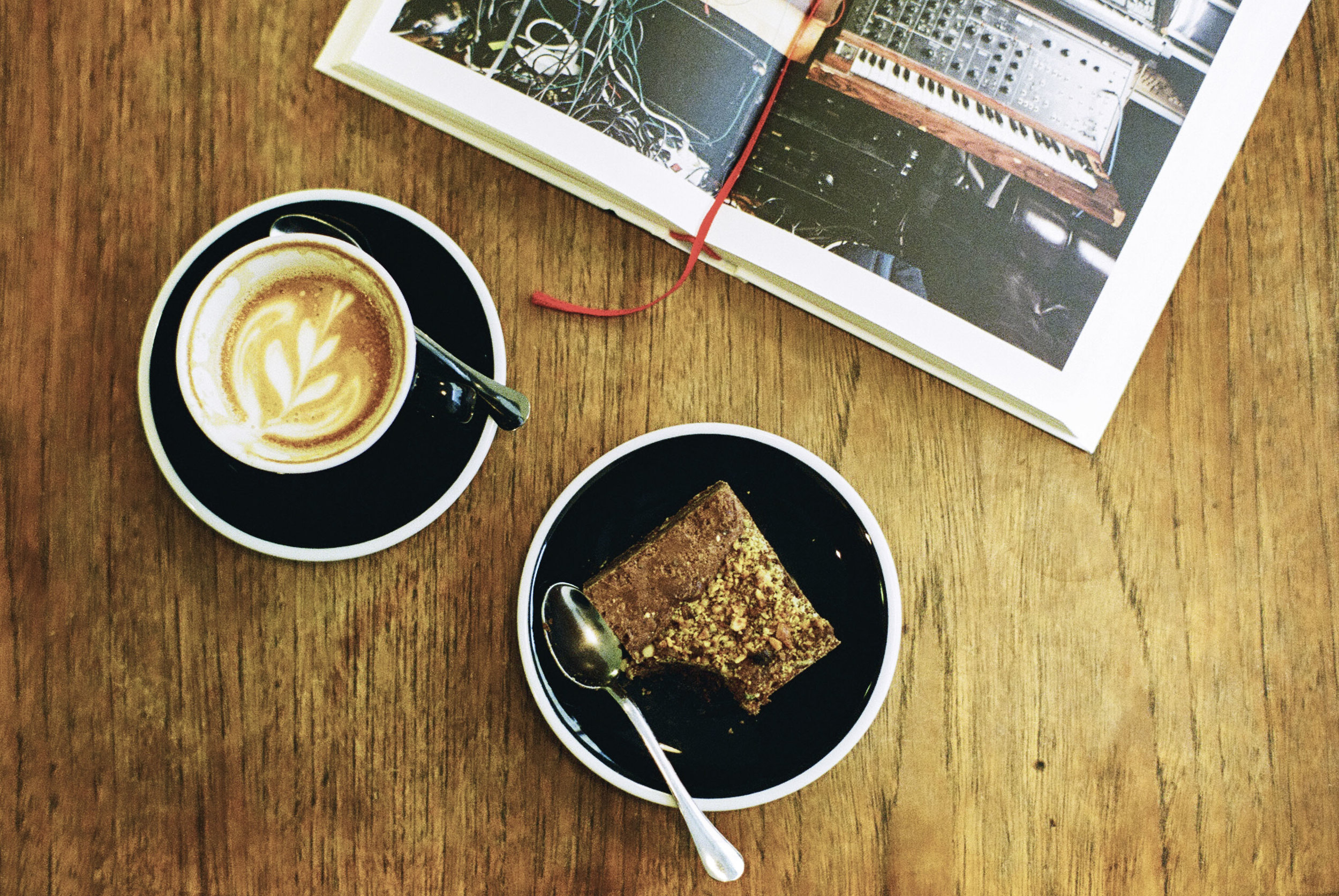What drove you to the specialty coffee business?
We were both pretty new to coffee when we met at Turun Kahvipaahtimo, a local roastery. Kyle and I both continued to work in coffee after the internship at the roastery. Kyle went on to work in a coffee shop and started roasting at home. I stayed at the roastery, working there for few years. In 2018 I was roasting for Coffee Collective in Copenhagen. Kyle was doing his own thing in the other side of Finland from Turku. I came back to Finland and learned about the Kakola neighborhood and that there could be a place for a small roastery. I hit up Kyle, he was up for it and now we are at the end of the first year in business!
We weren't satisfied with the current version of Specialty Coffee (or the lack of it) in Finland. We wanted to participate and roast really tasty coffee and to make it look fresh and inviting and approachable to someone who's not initiated to Specialty Coffee yet. We label our coffees either Fun or Exciting. Depending on the flavor profile. It's just either or. Fun is for balanced and approachable tastes and Exciting is more complex and adventurous. Easy like that.
How will Frukt evolve in the future? Have you got any set goals or projects that you would like to share with us?
Future is bright. We are ending the first year with the freshly opened coffee shop in the Kakola neighborhood that we run together with bageri Å. They bake amazing sourdough bread, insane sourdough croissants and we handle the coffee side. It's a great match. We are really excited about it. We'll develop the shop further in 2020.
The aim for 2020 is to be more professional in all that we do. We've done good in our first year, had amazing support from the people in and outside of Finland. I think we just need to step up and be as good as we can be. Build on the idea of transparency in trade of coffee and all the aspects of the business.
What are you most excited about regarding the growth and development of specialty coffee?
The most exciting thing for us is how easy it is to find great coffees and also the increased amount of traceability and transparency in Specialty Coffee. It's there, if you want it. We are certainly going to dig deeper and not just rotate good coffees from different producers year after year. We have found really good partners that we work with. We look forward to building these relationships further. It's amazing that a collective of producers from Colombia (LaREB) and us connected over another subject and that led to us being introduced to the green coffees they're producing and selling. We got the green coffee from Efrén Echeverry from LaREB and will for certain have more in the future. Don Francisco is from Primavera and Gute Sodu from Collaborative Coffee Source with who we have been working since the beginning. Connection, that's where it's at!
What can we expect from this month's coffees (Gute Sodu, Efrén Echeverry and Don Francisco)?
Gute Sodu is hands down one of the most exciting Ethiopian coffees for us this year. It is sparkling with citric acidity, lemon peel and intense florals. Such a clean and sweet coffee!
Efrén Echeverry is clean, sweet, fruity with orange-like acidity and some almond there too. The body is round and adds to the balanced cup.
Don Francisco is different from the other coffees we've had this year. This coffee is not too heavy in the mouthfeel, but the deep notes of dried fruit and cacao with brown sugar sweetness add to a feeling of a more heavy cup.
November’s box included these coffees ✨
Gute Sodu
Origin: Ethiopia
Process: Washed
Altitude: 1900-2100 MASL
Varieties: Dega & indigenous varieties
Tasting notes: Sparkling, lemonade & floral
Gute Sodu is a clean Ethiopian coffee from the Guduba washing station in the region of Guji. Smallholder farmers have produced the coffee in Hambela Wamena, close to the town Gute Sodu, from where the coffee has its name. The cherries are delivered to the washing station, where they are pulped, fermented for 48-72 hours, washed, and then dried on raised beds for 10 days. The coffee is a mix of Dega and indigenous varieties. This sparkling coffee has floral notes of lemonade.
Efrén Echeverry
Origin: Colombia
Process: Washed
Altitude: 1650 MASL
Varieties: Colombia & Caturra
Tasting notes: Stone fruit, caramel & bright
Efrén Echeverry is the farmer behind this tasty coffee. He is located in the municipality Palestina in the southern part of Huila, Colombia, an area known for its great coffees. After the coffee is picked, it is left for 12 hours in-husk resting. The coffee is later fermented for 48 hours, before being washed and dried in a greenhouse for 15 days. The mix of the Colombia and Caturra varieties makes this coffee special. This bright coffee has notes of stone fruit and caramel.
Exclusive to our Tasting box subscribers 👏
Don Francisco
Origin: Guatemala
Process: Washed
Altitude: 1750-1850 MASL
Varieties: Bourbon & Caturra
Tasting notes: Dried fruit, cacao & brown sugar
Francisco Salucio Ramirez is a second-generation coffee producer who runs the farm Mumuxa in Huehuetenango, Guatemala. This coffee is produced according to a ”double washing” process. The coffee is de-pulped the same day as it is picked and later fermented in water for 48 hours. After being washed, it is soaked in clean water for another 12 hours. Drying is done for another five to six days depending on the temperature. This is a great example of how good a Guatemalan coffee can be.
Explore Europe’s top roasters!


















